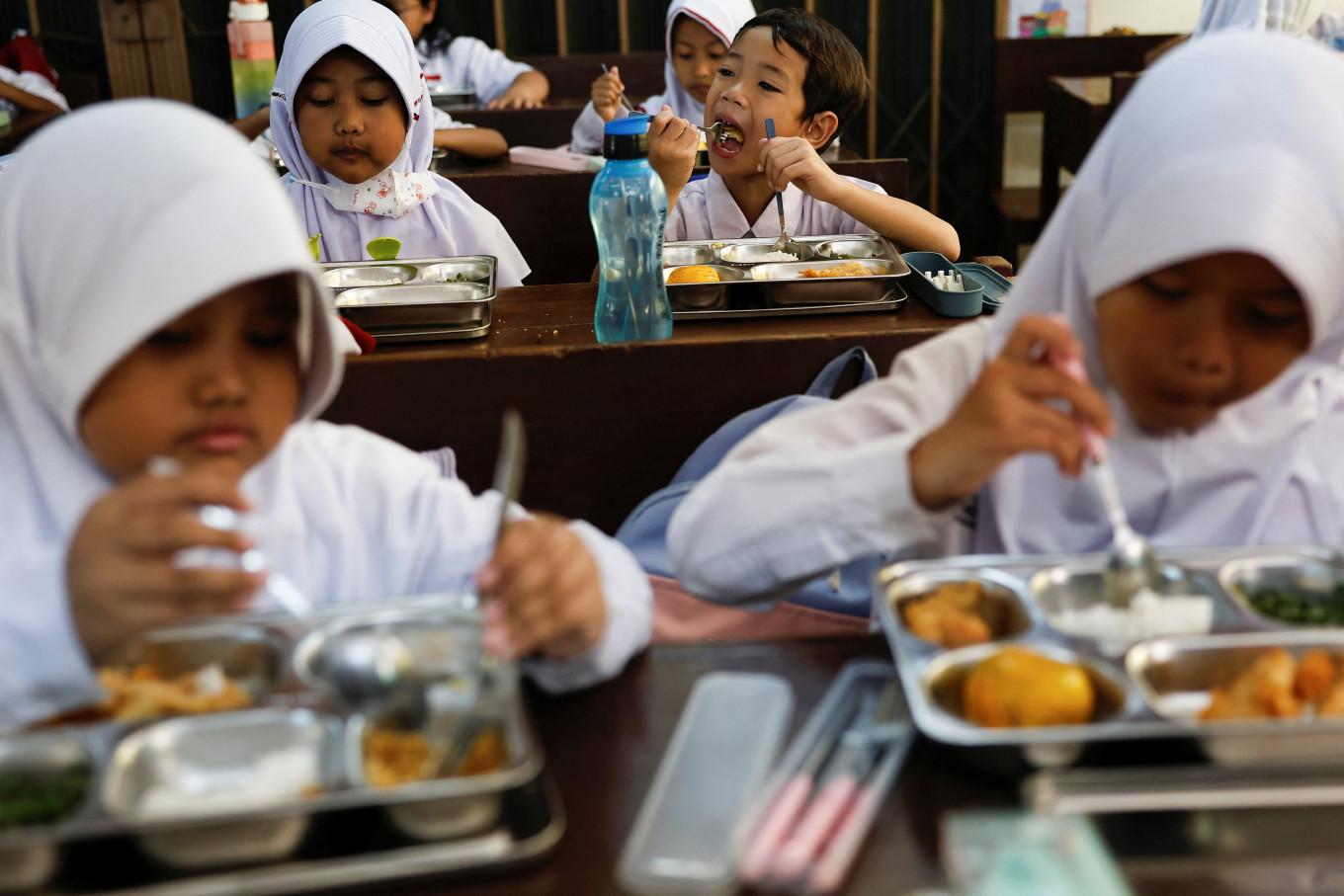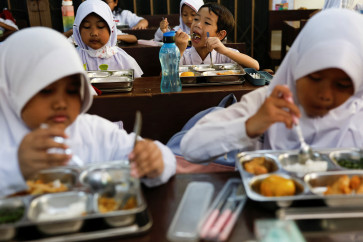Popular Reads
Top Results
Can't find what you're looking for?
View all search resultsPopular Reads
Top Results
Can't find what you're looking for?
View all search resultsFood waste dilemma behind free meals program
Without proper planning and management, the free meals program risks exacerbating Indonesia’s mounting food waste problems, undermining its lofty goals and creating unintended socioeconomic and environmental consequences.
Change text size
Gift Premium Articles
to Anyone
B
arely 100 days into office, President Prabowo Subianto has fulfilled one of his major campaign promises, the free nutritious meals program. Launched on Monday, the program aims to provide nutritious meals to priority community groups, namely pregnant women, breastfeeding mothers, toddlers and students at all levels of education.
The program, which reportedly will cost the state Rp 71 trillion until June, has sparked debates in the public sphere from the onset. Various reactions have emerged revealing both pros and cons.
While the government touts it as a flagship program to realize the Golden Indonesia 2045 vision, civil society groups and research institutions have raised concerns and criticized its implementation. The Center for Economic and Law Studies (Celios), for instance, comprehensively reviewed the free meals program and questioned several important points, such as the complexity of program execution, centralization, the quality of food, financing issues and potential corruption that may occur.
Instead of reiterating well-tread criticisms, we can shift the focus to a less discussed, if not overlooked, but critical issue: Food waste. I believe this emphasis will be more productive as the program has already been delivered.
Without proper planning and management, the free meals program risks exacerbating Indonesia’s mounting food waste problems, undermining its lofty goals and creating unintended socioeconomic and environmental consequences.
Recent news coverage, especially on national television channels, has spotlighted schoolchildren refusing to eat their provided meals. Whatever their reasons, the phenomenon signals the potential for food waste on a large scale.
Why does the discussion about food waste matter? This is not a trivial issue, as evidenced by the fact that most countries have homework on food waste. Globally, food waste contributes significantly to carbon emissions, squanders resources and amplifies the inequality of food security (Roka, 2024).


















